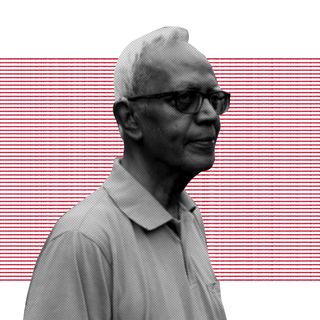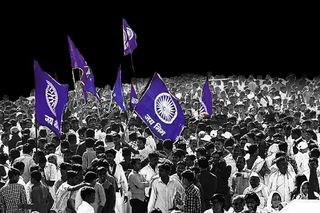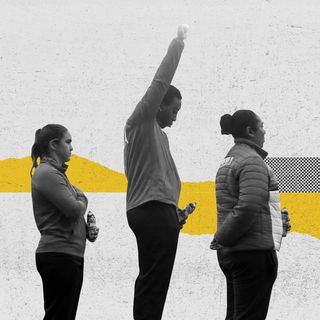
Bhima Koregaon Evidence Was Planted on 2 Activists’ Laptop, Others’ Mails Were Compromised: Report
“By February 2016, the attacker had compromised not just [Surendra] Gadling’s computer, but also the email accounts of multiple defendants in the Bhima Koregaon case,” Arsenal said.

A new report by American forensic agency Arsenal claims that evidence used to detain Surendra Gadling, a Dalit rights activist and lawyer, was planted. Gadling — along with 15 other activists, lawyers, and academics — was one of the first to be arrested in the Bhima Koregaon case in 2018 under the harsh anti-terror law alleging his links to a Maoist group.
“It should be noted that this is one of the most serious cases involving evidence-tampering that Arsenal has ever encountered,” the report noted, according to Washington Post.
The report is the third installment in the forensic investigation of the evidence used to incarcerate 16 people — who have been critical of the ruling government. The finding, along with previous reports by Indian media platforms like The Caravan, strengthens the case that Bhima Koregaon evidence was tampered with.
The forensic agency examined the hard drive of Gadling’s laptop to find his computer was attacked and surveilled upon. The evidence of the cyber attack was found as early as February 16, 2016 — two years before he was arrested. Arsenal’s report suggests the documents were planted on his computer using NetWire, a commercial malware that allows attackers to log keystrokes and upload and download files.
“Through the malware, the attacker had access to Gadling’s computer, including sites he browsed, emails he composed, and documents he edited,” Washington Post noted.
The two reports published earlier drew similar conclusions of tampering. In the first report, the forensic agency concluded that Rona Wilson’s laptop, confiscated in the same case, was also surveilled and the evidence was planted. Arsenal found activity from 2016 until hours before Wilson’s computer was seized by police; they concluded the hacker was identical in both Wilson and Gadling’s cases.
“The attacker in both instances is the same, experts conclude. Besides the same method of attacks via email, the hostnames, IP addresses, and the password used by the attacker to log into his command and control server are the same,” Niha Masih of the Washington Post noted.
The second report offered “irrefutable” proof of Rona Wilson’s devices being hacked and showed in-depth how 22 files on his laptop were planted. The Caravan had previously noted the police’s primary evidence cited in the charge sheet is this data retrieved from Gadling and Wilson’s hard drive.
The NIA had arrested Gadling on the basis of 14 significant documents found on his laptop. The charge sheet during Gadling’s arrest noted these documents included email communications between him and others arrested in the case — these letters played a crucial part in drumming up the “Urban Naxal” propaganda against Gadling and others.
Related on The Swaddle:
Activist Stan Swamy Dies of Prolonged Illness In Custody After Months of State Neglect
Notably, one such malware email received by Gadling was also marked to Stan Swamy and Sudha Bharadwaj, two other defendants in the same case. If they so much so as clicked on the attachment, similar malware would have been deployed on their devices, Arsenal concluded.
“By February 2016, the attacker had compromised not just Gadling’s computer, but also the email accounts of multiple defendants in the Bhima Koregaon case,” Arsenal said.
This punctures multiple holes in the very foundation of the Elgar Parishad case. Gadling, along with others detained including Anand Teltumbde, Varavara Rao, and Sudha Bharadwaj, was arrested in the aftermath of the 2018 violence at the annual Bhima Koregaon memorial.
The Pune police and NIA have claimed that the 16 accused were part of a banned Maoist organization; other “explosive” evidence found on their computers — that may have been tampered with — carried letters of an alleged plan to assassinate Prime Minister Narendra Modi.
The evidence has been “key” to critics of the government being arrested and jailed without bail on charges of conspiring against the Indian state. The shaky evidence, which has been at the locus of their detention, thus carries significant weight.
Activist Sudha Bharadwaj called the evidence against her “a totally concocted letter fabricated to criminalize me and other human rights lawyers, activists, organization.” She is currently fighting in court to prove a “mistrial” that led to her arrest. Bharadwaj, along with other accused like Hany Babu and Varavara Rao, suffers from various ailments and is being denied adequate medical care.
Moreover, the new report, in the aftermath of Father Stan Swamy’s death, reinforces the dark blot marring the judicial system and enforcement agencies. Swamy, a Jesuit priest and tribal rights activist, passed away this week after spending eight months in custody (which exacerbated his Parkinson’s disease) on similar accusations. His bail hearing was due on Monday, hours after he died.
Activists have noted how the draconian Unlawful Activities (Prevention) Act (UAPA) has been used to unjustly incarcerate critics of the government — imprisoning them indefinitely without the right to prove themselves innocent. Notably, all accused in the present case have been jailed, denied bail, without their case being heard by the courts. Notably, the number of political prisoners — dissenters arrested without legal basis — has increased considerably since the current ruling party came to power in 2014.
The miscarriage of justice — wherein critics of the government were detained without due process — was also pointed out by a United Nations body on Tuesday. “In light of the continued, severe impact of the Covid19 pandemic, it is even more urgent that States, including India, release every person detained without a sufficient legal basis, including those detained simply for expressing critical or dissenting views,” United Nations Human Rights chief Michelle Bachelet said.
“The story of the evidence against them [activists],” as journalist Raghu Karnad noted, “is amazing and bizarre, and is worth seeing clearly.”
Saumya Kalia is an Associate Editor at The Swaddle. Her journalism and writing explore issues of social justice, digital sub-cultures, media ecosystem, literature, and memory as they cut across socio-cultural periods. You can reach her at @Saumya_Kalia.
Related


Olympic Committee Issues ‘Rules of Protest’ for Athletes, Sparking Freedom of Speech Debate
